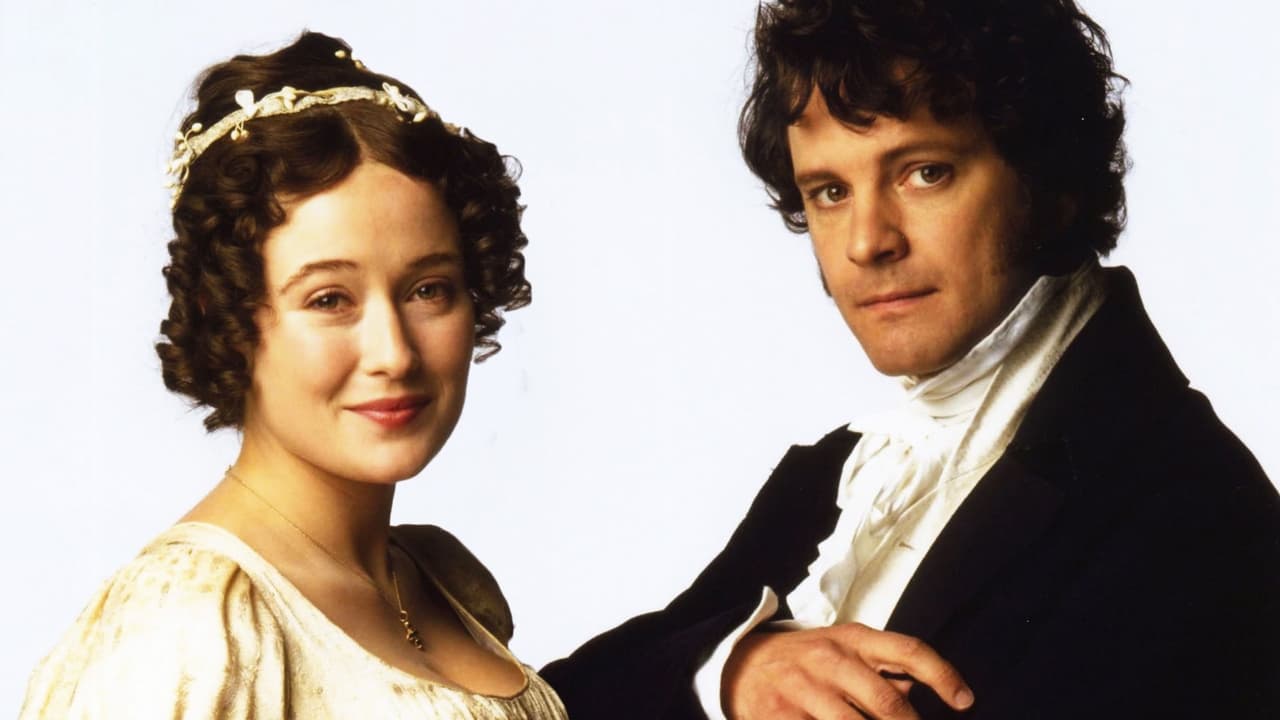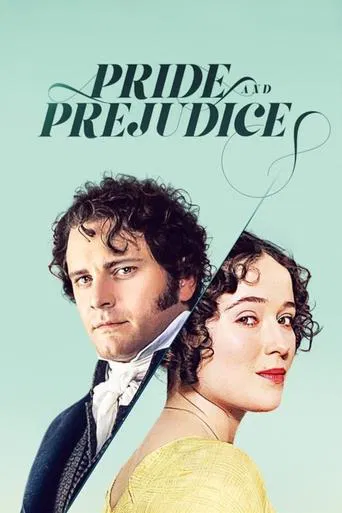

I think this is a new genre that they're all sort of working their way through it and haven't got all the kinks worked out yet but it's a genre that works for me.
... View MoreDon't listen to the negative reviews
... View MoreA Masterpiece!
... View MoreBy the time the dramatic fireworks start popping off, each one feels earned.
... View MoreI seem to be in the minority that prefers the 2005 version after all. It's one of my favorite movies ever (I watched it before I even read the book) but I decided to watch this one because it's generally everyone's favorite. Well, the costumes and settings are beautiful, and I liked that this version omitted practically nothing from the novel. As for the acting, I especially liked the Gardiners, Georgiana (my favorite Emilia Fox didn't disappoint) and, more or less, Mr. Bennet. The rest of the actors was good enough, but the characters...First, some other reviewers have already mentioned that the unlikable characters are made into caricatures. I felt it too. Lady Catherine looks and behaves like a more richly-dressed version of Mrs. Bennet - after watching the amazing performance of Judi Dench that can give you the shivers this one is rather bleak. Every fault of Mr. Collins and Mary is taken to such extremes that they couldn't even be annoying, they just felt wrong. Mr. Bingley and Jane were all right, but they were hardly given any interaction beyond dancing. Caroline was nicely cast, but I think sometimes her characters was too loud and rude in public - it would have been unthinkable for the oh so proper Miss Bingley who was poisonous but always kept her cool. Second, about the leads. I like Colin Firth - he was wonderful in "The King's Speech" - but he looks way too nice for Mr. Darcy in the first half of the story. His expression just says "poor; misunderstood, in love with Elizabeth from almost the beginning". Jennifer Ehle does capture Elizabeth's liveliness and wit... but here's the main problem. For me, the chemistry between the characters seemed far too weak. Their banter at Netherfield was excellent, but afterwards... let's just say that I was bored during the first proposal scene (one of the most electric and passionate ones in the 2005 movie). Even Mr. Collins sounded more emotional with his offer! Elizabeth didn't help matters either. She talked in the same cheerfully ironic manner to Mr. Darcy, Mr. Bingley, her relations or anyone else - there was very little to signify "her feelings are quite the opposite". I could understand that Mr. Bingley and Jane were left in the background (well, they are exactly there in the novel), but I would have liked better development for the main couple. It seems lots of people disagree, but there it is. It was a nice series to watch once, but the 2005 adaptation still remains the best for me.I p
... View MoreThere are few movies that will make you feel that its always your first time to watch the movie. And this one was the perfect example. I watched it multiple times but it feels like it was my first time to watch this. I'm excited to the improvement of two heroin love story, always waiting for my mr darcy.everything was perfect. You will fall inlove over and over again to this wonderful adaptation. :)I love love the 2005 version. But this one gave me more feels. Colin gave a wonderful portrayal of an arrogant and proud Mr. Darcy. Perfect!! And lizzie gave a wonderful performance . A witty and not an insecure lizzie.. All the cast were wonderful!! LOVE LOVE LOVE LOVE LOVE IT!!!
... View MoreThe BBC's 1995 production of Jane Austen's Pride & Prejudice (P&P) is the ultimate romance comedy. This miniseries stays close to Jane's "little baby" and gives credit to her exceptional ability as an author. The six-part miniseries allowed the screenwriter to include essential lines of Jane Austen's script without muddling the dialogue, unlike the 2005 P&P starring Keira Knightley which attempted to cram as much key dialogue of Jane's P&P in a two-hour movie. If you are tired of slasher and violent movies and want a break, and enjoy witty dialogue, this movie is for you. The story moves fast and the dialogue keeps the viewer engaged, giving the viewer little to no time to walk away to pop popcorn. And...as I get on in age I've come to love happy endings.
... View MoreWho dreads having to be forced to read a novel for English class? Most students would be nodding their heads yes right now, but how many times are you forced to read a novel only to find yourself falling in love with it? Now most students would be saying zero times. However for me, when I had to read Pride and Prejudice I caught myself falling in love with the novel by the end of it. Being so enticed by this novel, I began to look up adaptations of it. I then came across the 1995 TV series of Pride and Prejudice. It contains six episodes, about an hour long each, which were broadcasted by the British Broadcasting Corporation (BBC). The main roles were played by Colin Firth and Jennifer Ehle. I absolutely loved this adaptation of Pride and Prejudice. This TV series hit everything right on the nail. I only wish it never had to end because I enjoyed it that much. Pride and Prejudice is about a family of five daughters that are in search of suitable husbands. But most of the attention is on the rich, prideful Mr. Darcy and also the prideful, yet cunning Elizabeth Bennet, the second oldest of the daughters. Both overcome their pride and prejudice and fall in love with each other. The 1995 TV series adapted this well-known novel the best. Because it was a TV series each episode had time to be precise on every single detail of the novel and with this the series was very accurate to the novel. I appreciated the fact that for the majority of the series exact lines were said by the actors and actresses. And that made the series even more like the novel itself. I can just remember reading the novel and then pinpointing out the lines in the series when it was said. By doing that you can tell that the TV staff and cast really cared about vitalizing the novel into something visual and audible. Also because this was produced in the 1980's the series had that classic touch to it, something that a modern film/series would not have been able to capture. Furthermore, the selection of the cast was chosen very well. I felt that each actor/actress truly expressed their character to the max. Also a plus was that all the main characters had genuine British accents which accentuated the fact that Jane Austen wrote this novel in England. This TV series met and exceeded all of my standards of a well written adaptation of a novel/book. This TV series of Pride and Prejudice is by far the best adaptation I have seen of a novel or book. Events and lines were so accurate from all the episodes it certainly felt like I was reading the novel again. All six episodes were meticulously planned and written out that I never would have thought that I'd be excited to get to class to watch it again. If you love the novel as much as I do, the 1995 TV series of Pride and Prejudice will positively provide you with a lovely supplement.
... View More